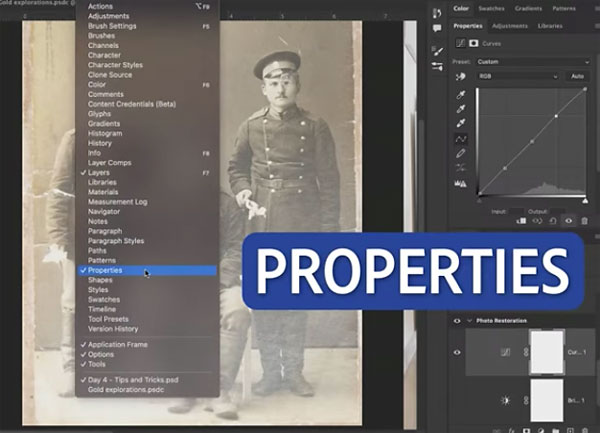Photoshop Basics: Restore Old Photos with Neural Filters (VIDEO)
If you’re like most folks, photographers and “civilians” alike, you probably have a bunch of old family photos lurking in shoeboxes and tattered albums just waiting for some TLC. And because you’re a photographer, relatives will likely solicit your help to restore their often-damaged mementos.
If you have no clue how to repair scratches and tears, clean up dirt spots, and correct fading to return cherished family photos to their original glory, your secret is safe with us. Even better, the quick beginners guide in the video below from the Adobe Photoshop YouTube channel will turn you into a hero by explaining how to let Photoshop’s Neural filters to do most of the heavy lifting.
At barely two minutes this is likely the fastest photo restoration tutorial you’ll ever find. Instructor Howard Pinsky covers a lot of ground in a rapid-fire manner, so we recommend grabbing a pen and paper before clicking the “Play” button so you can jot down some notes.

Pinsky explains using the appropriate Neural filters, as well as Blend modes, Adjustment layers and other simple tools for fixing those tattered photos. It’s unlikely you’ll qualify for a retouching job after watching this episode, but you will be able to make sufficient repairs that will draw praise from relatives and friends.
Pinsky begins with Adjustment layers and demonstrates a number of helpful options, from adding contrast to adjusting brightness. You’ll also learn a basic way to use Curves for quickly modifying highlights, midtones, and shadows to restore a balanced exposure to badly faded shots.
Then there are a bunch of Photoshop Neural filters that pretty much accomplish repairs automatically, while you sit back and admire your impressive “skills.” Bottom line: You probably don’t want to volunteer to be the family restoration expert, but when you’re asked (and that will happen sooner or later) you’ll be ready to handle the task. Just don’t lose your notes.

The Adobe Photoshop YouTube channel is full of helpful tricks for users of all skill levels, so remember to pay a visit when you have time.
And check out the tutorial we posted earlier, explaining why another editing expert says it’s often better to adjust Vibrance than Saturation when color correcting an image.





